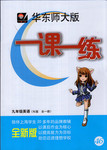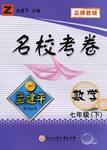“Long time no see” is a very interesting sentence. When I first read this sentence from an American friend’s email, I laughed. I thought it was a perfect example of Chinglish.
Obviously, it is a word-by-word literal translation of the Chinese greetings with a ruled English grammar and structure! Later on, my friend told me that it is a standard American greeting. I was too thrilled to believe her. Her words could not convince me at all. So I did a research on google.com. To my surprise, there are over 60 thousand web pages containing “Long time no see.” This sentence has been widely used in emails, letters, newspapers, movies, books, or any other possible places. Though it is sort of informal, it is part of the language that Americans use daily. Ironically, if you type this phrase in Microsoft Word, the software will tell you that the grammar needs to be corrected.
Nobody knows the origin of this Chinglish sentence. Some people believe that it came from Charlie Chan’s movies. In the 1930s, Hollywood moviemakers successfully created a world wide famous Chinese detective named “Charlie Chan” on wide screens. Detective Chan likes to teach Americans some Chinese wisdom by quoting Confucius. “Long time no see” was his trademark. Soon after Charlie Chan, “Long time no see” became a popular phrase in the real world with thanks to the popularity of these movies.
Some scholars refer to America as a huge pot of stew. All kinds of culture are mixed in the stew together, and they change the color and taste of each other. American Chinese, though a minority ethnic(少数民族的成员) group in the United States, is also contributing some changes to the stew! Language is usually the first thing to be influenced in the mixed stew.
You can have some other examples besides adoptions from Chinese, such as pizza from Italian, sushi from Japanese, and déjà vu from French etc. There is a long list! Americans do not just simply borrow something from others. They will modify it and make it their own, so you would not be surprised to find a tofu and peanut butter hamburger in a restaurant, or to buy a bottle of iced Chinese green tea with honey in a grocery store. Since Americans appreciate Chinese culture more and more nowadays, I believe more Chinese words will become American English in the future. In this way the American stew keeps adding richness and flavor.
1.The writer himself felt surprised at ______.
A. the Chinglish expression “Long time no see”
B. “Long time no see” used as standard American English
C. so many literal translation of the expressions used in America
D. finding out Americans use the expression every day
2.The word “stew” in the 4th paragraph probably means ______.
A. mixture literature B. Confucius’ words
C. a kind of cooked dish D. American changing cultures
3.According to the passage, it can be inferred that ______.
A. detectives translate the phrase “Long time no see”
B. Hollywood made “Long time no see” popular
C. the huge pot of stew greatly affects all kinds of languages
D. cultures can be changed in the huge pot of stew
4.The main idea of the passage is that ______.
A. some Chinese expressions are introduced into English
B. you’ll not be surprised at a tofu in a restaurant in America
C. some American expressions can be used in China
D. American English keep being enriched from different cultures
5.According to the passage, which of the following statements is not true?
A. Informal language sometimes doesn’t go with grammar and structure.
B. Languages are always ruled by grammar and structure.
C. Long time no see” has been used in at least four media mentioned in the passage.
D. There are four languages mentioned to be adopted in the American stew.

 华东师大版一课一练系列答案
华东师大版一课一练系列答案 孟建平名校考卷系列答案
孟建平名校考卷系列答案